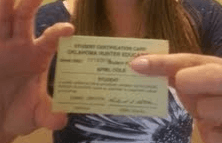- Home
- About
- Blog
- For Parents
-
Corners
- Allison’s Corner
- Amber’s Category
- Andrea’s Corner
- Ashley’s Corner
- Brandi Jo’s Corner
- Brittany’s Corner
- Brooke’s Corner
- Catrina’s Corner
- Conservation
- Desiree’s Corner
- Emily’s Corner
- Erica’s Corner
- Erin’s Corner
- Heather’s Corner
- Ivory’s Corner
- Jeana’s Corner
- Katie’s Corner
- Kelly’s Corner
- Kelsey’s Corner
- Kendra’s Corner
- Liberty’s Corner
- Lisa’s Corner
- Meagan’s Corner
- Melissa’s Corner
- Mimi’s Corner
- Morgan’s Corner
- Nicole’s Corner
- Sarah’s Corner
- Savannah’s Corner
- Shannon’s Blog
- Sharon’s Corner
- Sherri’s Corner
- Tara’s Corner
- Contact
- Guest Post

Get Geared Up for Hunter’s Safety Courses
Communities across the nation are gearing up for hunting season and this means that both new and seasoned hunters should be inquiring about hunting license and safety education requirements for their state. In many states, a hunter’s safety course is a requirement before a person can get a hunting license.
–
The most basic purpose of a hunter education course is to teach safe, responsible firearm handling in the field, in the vehicle, and in the home after hunting. Through lectures, hands-on activities, and videos, we learn about firearms and ammunition, firearm safety, shooting fundamentals, and firearm and wildlife laws.
–
While hunter education courses enable safer hunting, they also help hunters be more successful in their hunts, and emphasize ethical hunting behavior. Subjects covered include hunter responsibility, wildlife identification and management, game care, outdoor survival, and more. Students also receive introductions to hunting with bows and black powder firearms.
–
Hunter education courses are packed with solid advice that even the most experienced outdoorsmen can use. Safety courses have become more thorough and strict since they were first introduced. They now cover more than just hunting. Many discuss wilderness survival and first aid techniques, game identification and how to properly field dress and store game. That’s why these courses are recommended for anyone who spends time in the outdoors, whether or not they intend to hunt. The basic outdoor skills acquired in a hunter education course can be invaluable during any outdoor activities.
–
To cover these topics adequately, courses consist of at least ten hours of instruction. A Hunter Education Card is awarded to students who have attended all classes and who pass the final exam. Since these hunter safety certificates are required, most states have reciprocal agreements for this. Pass the test in one state and another state will honor the certificate.
–
There are a couple different options for those who work odd hours, or find it difficult to make it to a scheduled class. One of these options is learning online. Many states now allow prospective hunters to take education courses online. While the test may be delivered in person from a certified instructor, the online hunter safety course lets students learn the material at their own pace. Online education has another distinct advantage over live classroom instruction; if a student needs to cover certain material again, they can. There is also the option to take practice tests online.
–
Older hunters can take some time to go over the information as well. As state-specific courses also cover some of the game laws, a veteran outdoorsman might learn about changes to the law. While nothing replaces actual hands-on experience, video is a good choice to further instill a lesson. Watching someone demonstrate is one of the best ways to learn.
–
Another course, bowhunter-ed.com, also offers official, state-specific training for those who wish to learn more about bow hunting or require bow hunter education before purchasing a hunting license. Archery and the various kinds of bows are discussed with emphasis put on broadhead safety.
–
Thanks in large part to education efforts, shooting is one of the safest sports around. The National Shoot Sports Foundation issued a report showing that hunting with firearms has an injury rate of around .05 percent. That’s one injury per 2,000 people participating.
–
Women-only classes are now being held in some locations. This instruction and opportunity for women interested in traditional sports are being offered at an increasing rate. State supported programs and special gatherings hosted various organizations are offering skills training and individualized education for women of all ages. The “Women Afield” is a great resource for women wanting to get more involved in shooting sports, hunting and fishing.
–
For more information about hunter safety education courses near you, check with your state Wildlife Agency or Department of Natural Resources.
–
And remember, safe hunting is no accident.
–
How do you prepare and keep up to date on all the safety issues and laws?
Aug 16, 2013 | Category: Blog | Comments: none

Leave a Reply